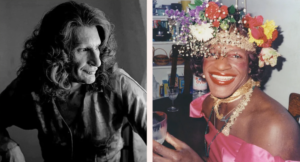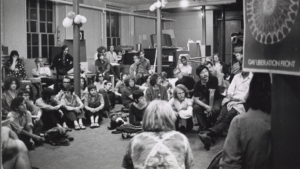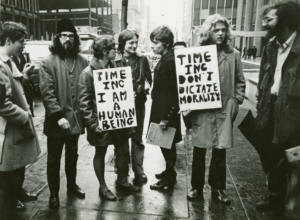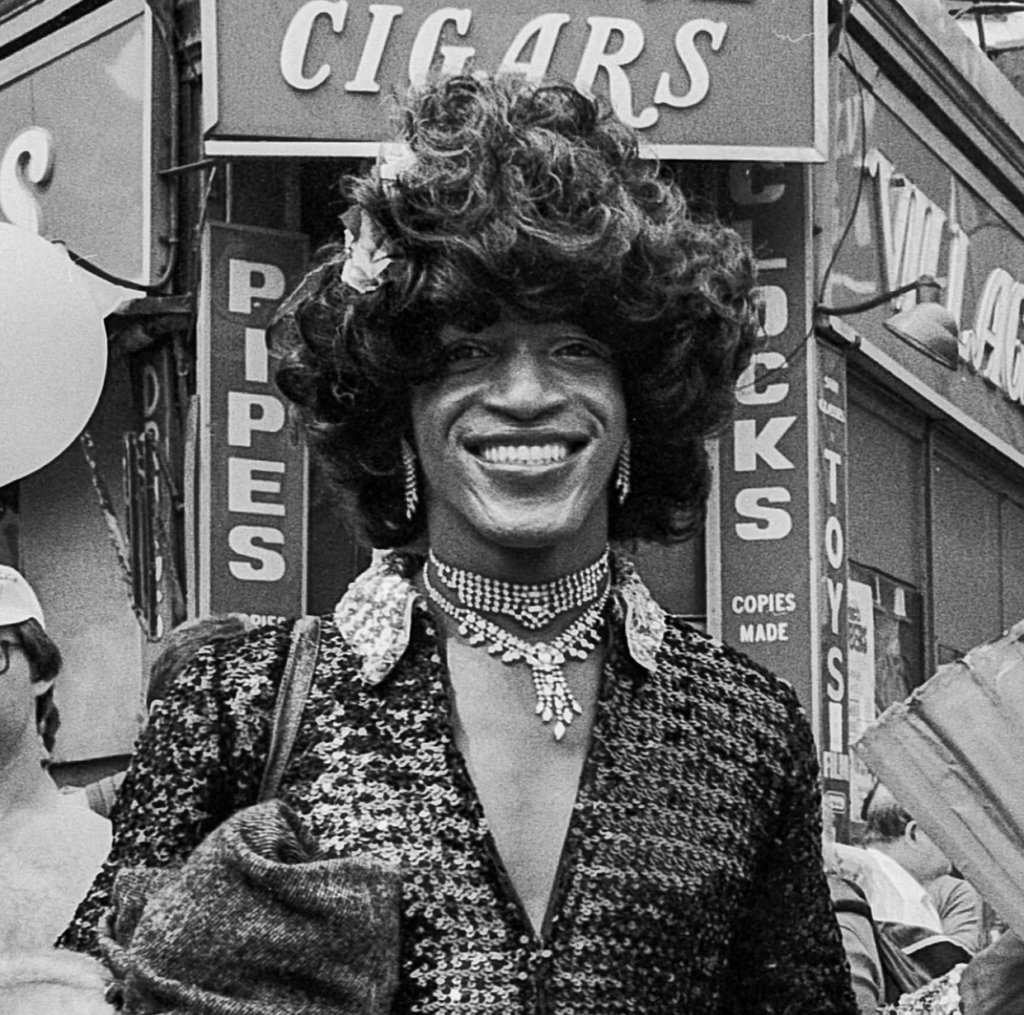The fight for LGBTQ+ rights has been long and arduous, marked by the courage of countless individuals who stood up against oppression. Among the most iconic figures in this movement is Marsha P. Johnson, a Black trans woman, drag queen, and activist whose contributions remain foundational to the LGBTQ+ rights movement. Her tireless advocacy and bold personality not only shaped the way LGBTQ+ individuals are seen today but also left a profound impact on the broader fight for equality. Johnson’s approach was unapologetic, and she once said, “I may be crazy, but that don’t make me wrong,” capturing the spirit of her defiant, no-nonsense activism. Her work highlights the ongoing struggle for LGBTQ+ rights, which remains relevant today as new policies continue to shape the community’s legal and social standing.

Drag the Fight Forward: Marsha P. Johnson’s Impact on LGBTQ+ Activism
Marsha P. Johnson was born in 1945 in Elizabeth, New Jersey. She moved to New York City in the early 1960s, becoming a familiar figure in the Greenwich Village drag scene. But Johnson’s activism went far beyond the stage. She was a fierce advocate for the rights of Black trans people, homeless LGBTQ+ youth, and those living on the margins of society. Alongside her close friend Sylvia Rivera, she co-founded the Gay Liberation Front (GLF) and the Street Transvestite Action Revolutionaries (STAR), organizations dedicated to supporting homeless trans youth and fighting for trans rights.
Johnson’s legacy is often linked to the Stonewall Uprising of 1969, a pivotal moment in LGBTQ+ history. During a police raid on the Stonewall Inn, a bar serving LGBTQ+ patrons, violent confrontations broke out between law enforcement and protesters. Johnson, along with other activists, took a stand against police brutality, helping ignite the modern LGBTQ+ rights movement. The rebellion lasted for several nights, sparking the formation of LGBTQ+ advocacy groups, the first Pride marches and the recognition of LGBTQ+ rights as a mainstream cause.


Marsha P. Johnson: The Martyr with a Smile
Marsha P. Johnson’s life w
as tragically cut short when she was found dead in 1992, floating in the Hudson River under mysterious circumstances. Originally ruled a suicide, her death has since been widely questioned, with many believing it to be a murder. Her case remains a symbol of the violence faced by Black trans women and the lack of justice they often receive.
Despite this tragic ending, Johnson’s legacy continues to inspire activism. Her famous slogan, “Pay it no mind,” — the P in Marsha P. Johnson — became a rallying cry for embracing individuality and rejecting societal norms. Her work with STAR paved the way for greater awareness of trans rights and the importance of community-led support systems.
“Living Loud, Loving Bold”: The Challenges Then and Now
Despite the strides made in the decades since Johnson’s time, LGBTQ+ activists still face a long road to full equality. Issues like transphobia, discrimination in the workplace, and the struggle for legal protections remain as urgent as ever. Marsha P. Johnson fought against these same injustices in the 1960s and 1970s, particularly the intersectional challenges faced by trans people of color.
Her story highlights how the fight for LGBTQ+ rights is deeply intertwined with the fight against racism, poverty, and other forms of systemic oppression. Today, we continue to see the challenges of racism within the LGBTQ+ community, with people of color often marginalized within mainstream LGBTQ+ spaces. Johnson’s work with STAR emphasized the need for LGBTQ+ activists to recognize and address these intersectional struggles.
In recent years, while some progress has been made in areas like marriage equality and transgender rights, there are still many obstacles in areas like healthcare access, employment rights, and protection against hate crimes. Many activists today continue to build on the foundation laid by Johnson and others, pushing for equal rights and safety for everyone, regardless of gender identity or sexual orientation.
Unfortunately, the current U.S. administration has had a significant impact on LGBTQ+ policies. Efforts to roll back protections for transgender individuals in healthcare, education, and the military have raised concerns among activists. The push for anti-LGBTQ+ legislation in several states, such as restrictions on gender-affirming care, bans on same-sex marriage, and bans on drag performances, highlights the ongoing struggle for equality. Meanwhile, advocacy groups continue to fight for expanded rights, including the passage of the Equality Act (2021-2022), which would provide comprehensive protections against discrimination based on sexual orientation and gender identity. This could mean the reversal of many policies protecting the LGBTQ+ community in the next few years, posing a significant concern for the civil rights of this community.
“Paying It Forward”: Marsha P. Johnson’s Lasting Influence on Modern Activism
Marsha P. Johnson’s impact on the LGBTQ+ rights movement cannot be overstated. She played a key role in shaping the fight for LGBTQ+ equality, and her legacy continues to inspire new generations of activists. An activist who truly reiterated the importance of acceptance of the human race and encouraged empathy and humanity through solidarity. The documentary Pay It No Mind: The Life and Times of Marsha P. Johnson provides valuable insight into her activism and the broader LGBTQ+ movement.
Johnson once said, “You never completely have your rights, one person, until you all have your rights.” While Pride Week celebrations honor the progress made, this statement serves as a reminder that the fight for LGBTQ+ equality is far from over, and that to truly gain equality the fight involves everybody’s contribution and a level of understanding only achieved through active empathy. Recognizing the intersectionality of the movement and addressing ongoing issues such as systemic racism, transphobia, and discriminatory legislation is essential in ensuring a future where everyone, regardless of identity, can live with dignity and respect. And Marsha P. Johnson was only one of the many role models for this cause.
By: Tatiana Rivera Solá



